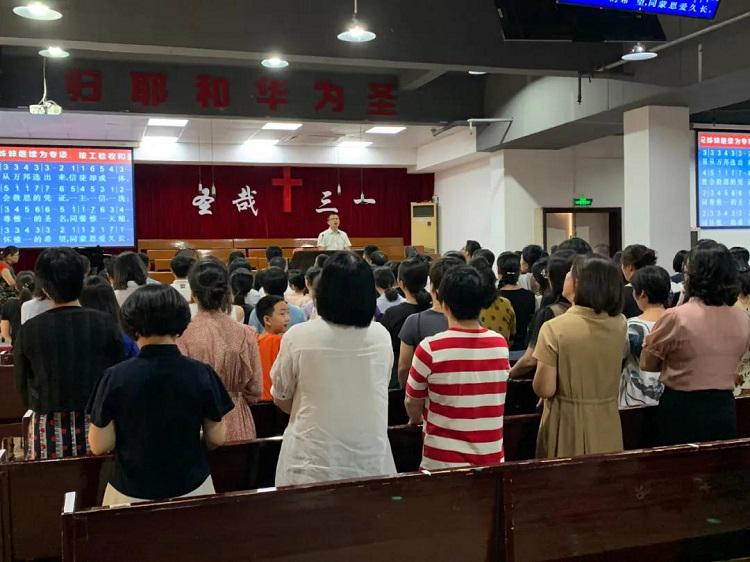In the Westminster Larger Catechism, the answer for Question 117 "How is the sabbath or the Lord’s day to be sanctified?" is, “The sabbath or Lord’s day is to be sanctified by a holy resting all the day, not only from such works as are at all times sinful, but even from such worldly employments and recreations as are on other days lawful; and making it our delight to spend the whole time (except so much of it as is to be taken up in works of necessity and mercy) in the public and private exercises of God’s worship.” It can be seen that we can not just worship God during the Sunday service lasting one or two hours, but sanctify the whole day.
Traditionally, churches have valued the Lord’s Day. Besides holding Sunday services, some churches also make good use of the time after service to organize activities, helping congregants grow in their faith. These activities might include study courses, fellowship gatherings, prayer meetings, or sharing sessions aimed at seekers.
Church A in Hangzhou, a large urban church, holds two worship services on Sunday mornings, with a half-hour interval between the first and second services. During this half-hour, the church organizes prayer partners to pray for the congregants who attended the first service. The prayer team, consisting of about 10 people, can each receive one to three individuals for prayer. Within half an hour, these prayer partners can intercede for nearly 30 people.
At a church in Hebei, immediately following the Sunday service, a volunteer pastor takes the microphone to share. The sharing sessions are primarily aimed at first-time visitors to the church, hoping to plant the seeds of the gospel in their hearts. The content of the sharing often combines examples from daily life to illustrate the beauty of the Christian faith.
Holding study courses and discipleship training are more common activities after Sunday services. The content of the study courses is often more profound than that of the service, including discussions on intellectual topics. Many believers gain their theological knowledge and apologetic skills through this channel. Discipleship training is mainly for new believers, focusing on practical life applications, such as how to live a Christian life and how to make decisions that align with God’s will when faced with diverse conflicts.
An experienced pastor mentioned that, given the current limitations on evangelism, churches should host a variety of activities to attract more people.
Last Sunday, I attended a Sunday service and study course at a church in Nanjing. We studied the lesson of how to share the gospel with others, the 12th session of The Abundant Life Course. There were nearly 20 participants, half of whom were elderly believers. The teacher used vivid illustrations and specific scriptures to guide everyone on how to coherently share Jesus' salvation through God's love, sin, and the cross. Although I have been a believer for more than ten years, I just knew how to use scriptures to explain the gospel clearly after this study. With a positive interaction, those who participated in the one-hour study benefited a lot.
- Translated by Abigail Wu












